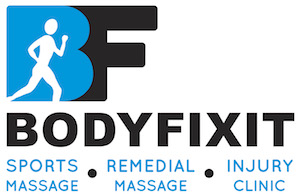We’re committed to the safety and well-being of everyone at Bodyfixit. That’s why we recently completed our First Aid Training refresher, ensuring we’re up-to-date on the latest life-saving techniques. The experience was a reminder of the critical importance of first aid knowledge and inspired us to share some key takeaways with you.
Why First Aid Training Matters
Knowing how to respond in an emergency can make the difference between life and death. Whether it’s administering CPR, treating a burn, or recognising the signs of a serious condition, first aid skills empower you to act quickly and confidently.
We encourage everyone to consider taking a first aid course – it’s an investment in your safety and the safety of those around you.
First Aid Tips & Reminders
Despite completing a First Aid course every 3 years, there are some new things that we learnt this year, which we thought might be worth sharing in case you didn’t know either!
- Spring Clean Your First Aid Kit: Just like our homes, our first aid kits need a spring clean! Take a moment to check expiration dates on medications and supplies, and restock anything that’s running low. This simple step can ensure you’re prepared when you need it most.

- Sepsis Awareness: Sepsis is a life-threatening condition that can develop rapidly. Did you know that it causes approximately 48,000 deaths in the UK each year? With around 245,000 people affected each year, a significant portion of these deaths are preventable with timely diagnosis and treatment. To give a little perspective – around 100,000 hospital admissions each year due to heart attacks. A lot of people aren’t aware of sepsis. Early recognition and treatment are crucial. Learn the signs and symptoms, and don’t hesitate to seek medical attention if you suspect sepsis

- Defibrillator Preparedness: In a cardiac emergency, every second counts. If you need to use a defibrillator, remember that the storage box typically contains a small bag with a razor and other helpful items. This is to shave a hairy chest so the pads stick well. Ensure you take this bag with the defibrillator, it may be zip tied to the device. To locate your nearest defibrillator, visit www.defibfinder.uk. However, be aware that this database is still being populated. If you know of a public defibrillator that isn’t listed, please contact your parish council and encourage them to register it at www.thecircuit.uk.

- Texting 999: Did you know you can text 999? This is a valuable option in situations where speaking is dangerous or impossible, such as choking, domestic violence, or hostage situations. It’s also a valuable tool for those who are deaf or hard of hearing. You must pre-register your mobile phone to use this service.

- CPR and Defibrillator Training: We highly recommend learning CPR and how to use a defibrillator. Carolyn Port at Winterbury Training provides excellent practical training and is actively involved in community CPR education and runs a number of courses – check out the website!

Carolyn Port
07584 732119
carolyn@winterburytraining.co.
https://winterburytraining.co.
Monday-Friday: 8am-6pm
Stay Informed, Stay Prepared
By staying informed and prepared, we can create a safer environment for ourselves and our communities. We hope this newsletter has provided valuable insights into first aid and emergency preparedness.
We hope you found this information useful.

